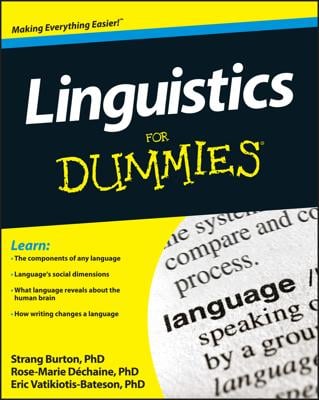Linguistics is the scientific study of human language. Linguistics students study how languages are constructed, how they function, how they affect society, and how humans learn language. From understanding other languages to teaching computers to communicate, linguistics plays a vital role in society. Linguistics For Dummies tracks to a typical college-level introductory linguistics course and arms you with the confidence, knowledge, and know-how to score your highest.
- Understand the science behind human language
- Grasp how language is constructed
- Score your highest in college-level linguistics
If you're enrolled in an introductory linguistics course or simply have a love of human language, Linguistics For Dummies is your one-stop resource for unlocking the science of the spoken word.
Linguistics is the scientific study of human language. Linguistics students study how languages are constructed, how they function, how they affect society, and how humans learn language. From understanding other languages to teaching computers to communicate, linguistics plays a vital role in society. Linguistics For Dummies tracks to a typical college-level introductory
- Understand the science behind human language
- Grasp how language is constructed
- Score your highest in college-level linguistics
If you're enrolled in an introductory linguistics course or simply have a love of human language, Linguistics For Dummies is your one-stop resource for unlocking the science of the spoken word.

